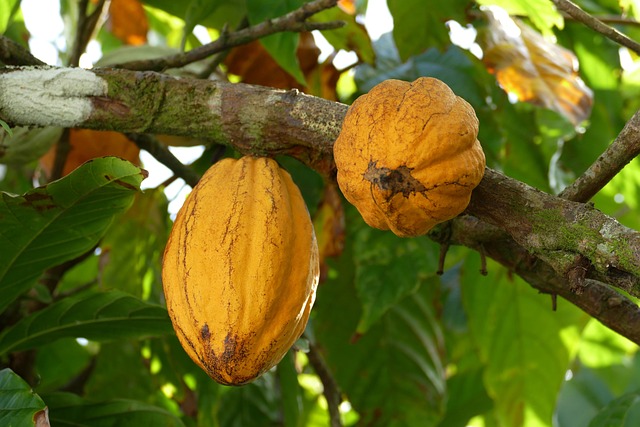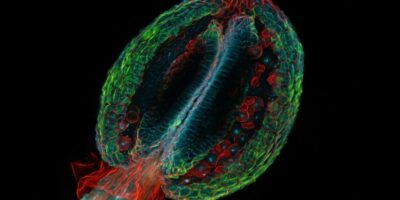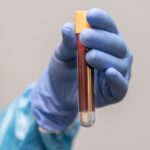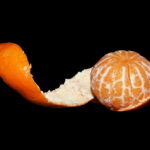As the weather turns colder and stores start stocking shelves with veritable tons of Halloween chocolate, don’t hesitate to swipe a bag into your cart—researchers at University of Science and Technology of China have found that cocoa lowers the risk of developing cardiovascular disease (CVD) by 7-23%.
Researchers at USTC recently published the results of a 2 year, double-blind, placebo-controlled study called COSMOS (COcoa Supplement and Multivitamin Study) in which they studied the effect of cocoa flavanols and epicatechins, two bioactive compounds and antioxidants found within cocoa.
Details of the trial
There were two pills that a patient could have taken: a 500 mg flavanol + 80 mg epicatechin cocoa supplement, or a placebo. They were instructed to take these pills twice a day for two years. It was a double-blind trial, so both the patients and the researchers were uninformed of which group was which. The median age of participants was 70 years old, and a whopping majority (92.8%) of participants were non-Hispanic White.
It is worth noting that a potential conflict of interest could arise from the fact that the cocoa supplements used were provided by Mars Inc. which produces chocolates and chocolate products for sale, as well as the fact that two researchers were provided grants from Mars Inc.’s nutrition research and products segment, Mars Edge.
The scientists were looking at something called “inflammaging biomarkers”. Biomarkers are simply indicators of a condition, e.g. high cholesterol is a biomarker for CVD. Inflammaging is a chronic, low-grade inflammation that increases with age, and is often associated with chronic disability, frailty, and premature death. While some inflammation is normal in response to an immune attack, as we age, our body loses control over such systems. This often leads to chronic over-stimulation of the body’s natural immune system and can be detrimental to health. Researchers believed that cocoa flavanols could significantly slow levels of inflammaging critical to CVD in older adults.

What did they look at and why?
Five inflammaging biomarkers were looked at: two interleukins (IL-6 and IL-10), a tumour necrosis factor (TNF-ɑ), an interferon (INF-γ) and a general protein associated with systemic inflammation (CRP).
Interleukins, such as IL-6 and IL-10, are essentially chemical signals that are sent between white blood cells. They can be pro-inflammatory, such as IL-6, or anti-inflammatory, such as IL-10. Tumour necrosis factors (TNF) are complex, but they play a big role in cancer, both in its prevention and development. Mainly, it seems their job is to kill cancer cells, while its overproduction can lead to the formation of cancer tumours. Interferons are signaling proteins that “interfere” with viruses and bacteria, fighting off infections and cancers. The above four biomarkers are all related to inflammation and inflammaging in some way. CRP, or C-reactive protein, is a protein made by the liver. The presence of CRP is indicative of inflammation in the body.
In order to measure the levels of these biomarkers, blood specimens were taken from the participants, either by mail kits, home visits, or on-site blood drawing. They were then taken by Augusta University and tested and analyzed using SimplePlex, an automated assaying platform that measures cytokine levels by loading a sample cartridge and using microfluidic technology to keep proteins immobilized for analyzing. Participants were required to give samples at the beginning, or baseline, at Year 1, and at Year 2.
Therefore…
The findings were concluded after fixing for multiple random variables that while IL-6, TNF-ɑ, and IL-10 showed no significant change between baseline and Year 2 for the treatment group compared to the placebo group, CRP and INF-γ experienced a statistically significant change between baseline and Year 2 for the treatment group compared to the placebo group.
There was a 5.5% increase in CRP in the placebo group, while it decreased non-significantly in the treatment group. Ultimately, average CRP levels in the placebo group were found to be 8.4% higher compared to the treatment group. Therefore, cocoa supplements significantly slowed the increase of CRP, and potentially had an impact on the rate of inflammaging.
IFN-γ had increased in treatment group patients by an average of about 3.9%, while in the placebo group, the biomarker had decreased by 2.7%, leading to an overall difference of +6.8%. It can therefore be said that IFN-γ was increased by 6.8% on average, compared to a non-treatment group, which could mean that its antiviral and immunostimulatory effects were boosted by the supplement. The effect of cocoa flavanols on IFN-γ and inflammaging need to be further studied in order to improve the confidence of this statement.
Overall, the risk of CVD-related deaths had decreased by 7%-23% in the treatment group, and cocoa flavanols had a significant effect on CRP and IFN-γ levels in older adults in the USA. So next time you feel guilty for eating a full sized mega chocolate bar on your couch in the dark with your phone open on your lap, just tell yourself you’re simply protecting yourself from cardiovascular related disease!
(Disclaimer: that was a joke, please do not supplement your diet with daily mega chocolate bars for heart health on account of this blog post.)
Citations:
Li, S., Hamaya, R., Zhu, H., Clar, A., Rist, P. M., Huang, Y., Manson, J. E., Sesso, H. D., & Dong, Y. (2025). Effects of 2-year cocoa extract supplementation on inflammaging biomarkers in older US adults: Findings from the COcoa Supplement and Multivitamin Outcomes Study randomised clinical trial. Age and Ageing, 54(9), afaf269. https://doi.org/10.1093/ageing/afaf269
Aldo, P., Marusov, G., Svancara, D., David, J., & Mor, G. (2016). Simple PlexTM: A Novel Multi‐Analyte, Automated Microfluidic Immunoassay Platform for the Detection of Human and Mouse Cytokines and Chemokines. American Journal of Reproductive Immunology, 75(6), 678–693. https://doi.org/10.1111/aji.12512
Cytokines and Their Side Effects. (n.d.). Retrieved October 18, 2025, from https://www.cancer.org/cancer/managing-cancer/treatment-types/immunotherapy/cytokines.html
Photo Credits from Pixabay
No AI was used in the writing or editing of this material.








